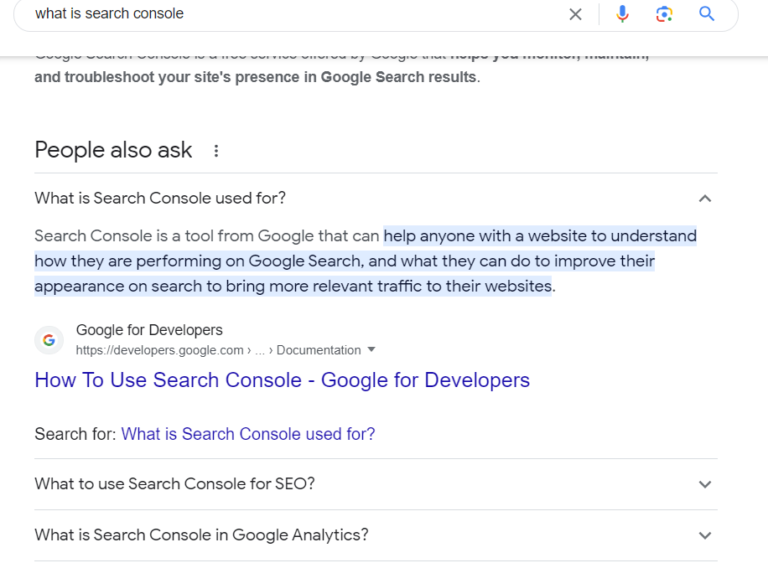What to Ask SEO Consultants: 5 Must Ask Questions
Introduction:
In today’s digital age, having a strong online presence is crucial for the success of any business. One of the most effective ways to achieve this is through search engine optimization (SEO). SEO is the process of optimizing your website to rank higher in search engine results pages (SERPs), making it more visible to potential customers. This increased visibility can lead to higher website traffic, more leads, and ultimately, more sales.

The impact of SEO on website traffic and sales cannot be overstated. According to a study by BrightEdge, organic search drives 51% of all website traffic, while paid search only accounts for 10%. Additionally, a study by Search Engine Journal found that 70-80% of users ignore paid ads and focus on organic search results. These statistics highlight the importance of SEO in driving organic traffic to your website and increasing your chances of converting visitors into customers.
What to Look for in an SEO Consultant:
When it comes to hiring an SEO consultant for your business, it’s important to choose someone who is qualified and experienced in the field. SEO is a complex and ever-changing discipline, so you want to make sure you’re working with someone who has the knowledge and expertise to navigate the constantly evolving landscape.
One of the first things to look for in an SEO consultant is their qualifications. Are they certified in SEO? Do they have any relevant education or training? Certifications such as Google Analytics and Google AdWords can be a good indication that the consultant has a solid understanding of SEO best practices.
Experience is also key when choosing an SEO consultant. Look for someone who has worked with businesses similar to yours or in your industry. They will have a better understanding of your target audience and how to optimize your website to attract them. Ask for case studies or examples of their past work to get a sense of their track record and the results they have achieved for their clients.
The Benefits of Hiring an SEO Consultant for Your Business
Hiring an SEO consultant can bring numerous benefits to your business. One of the most obvious benefits is increased website traffic. By optimizing your website for search engines, an SEO consultant can help you rank higher in SERPs, making it easier for potential customers to find you. This increased visibility can lead to more organic traffic and ultimately, more sales.
Another benefit of hiring an SEO consultant is cost-effectiveness. While you may be tempted to hire an in-house SEO team, this can be a costly endeavor. By outsourcing your SEO needs to a consultant, you can save on overhead costs such as salaries, benefits, and training. Additionally, an SEO consultant will have access to specialized tools and resources that may be too expensive for a small business to invest in.
Access to specialized knowledge and expertise is another advantage of hiring an SEO consultant. SEO is a complex field that requires a deep understanding of search engine algorithms, keyword research, on-page optimization, link building, and more. By working with an experienced consultant, you can tap into their knowledge and expertise to ensure that your website is optimized effectively.
The Top 5 Must-Ask Questions for Your SEO Consultant
Before hiring an SEO consultant, it’s important to ask them a series of questions to ensure they are the right fit for your business. Here are the top 5 questions you should ask:
1. What is Your Approach to Keyword Research and Analysis?
Keyword research and analysis are fundamental aspects of SEO. By understanding what keywords your target audience is searching for, you can optimize your website to rank higher in SERPs. A good approach to keyword research and analysis should involve identifying relevant keywords with high search volume and low competition, as well as analyzing the intent behind those keywords.
2. How Will You Optimize My Website for Local SEO?
If your business has a physical location, local SEO is crucial for attracting customers in your area. A good approach to local SEO should include optimizing your website for location-based keywords, creating and optimizing your Google My Business listing, and building citations and backlinks from local directories.
3. What Strategies Will You Use to Improve My Website’s Page Speed?
Page speed is not only important for user experience but also for SEO. Slow-loading websites can lead to higher bounce rates and lower rankings in search engine results. An SEO consultant should have strategies in place to improve your website’s page speed, such as optimizing images, minifying CSS and JavaScript files, and leveraging browser caching.
4. How Will You Measure the Success of Your SEO Campaign?
Measuring the success of an SEO campaign is crucial to determine its effectiveness and make data-driven decisions. An SEO consultant should track and report on key metrics such as organic traffic, keyword rankings, conversion rates, and ROI. They should also provide regular reports and updates on the progress of your campaign.
5. What is Your Plan for Ongoing SEO Maintenance and Updates?
SEO is not a one-time effort but an ongoing process. Search engine algorithms are constantly changing, and your competitors are always trying to outrank you. An SEO consultant should have a plan in place for ongoing SEO maintenance and updates, which may include regular website audits, content optimization, link building, and staying up-to-date with the latest industry trends.
Question 1: What is Your Approach to Keyword Research and Analysis?
Keyword research and analysis are essential components of any successful SEO campaign. By understanding what keywords your target audience is searching for, you can optimize your website to rank higher in search engine results pages (SERPs) and attract more organic traffic.
A good approach to keyword research and analysis should involve several steps. First, the SEO consultant should conduct thorough research to identify relevant keywords that are related to your business and have high search volume. This can be done using keyword research tools such as Google Keyword Planner, SEMrush, or Moz Keyword Explorer.
Once the relevant keywords have been identified, the SEO consultant should analyze the competition for those keywords. This involves looking at the websites that currently rank on the first page of SERPs for those keywords and assessing their authority, backlink profile, and on-page optimization. This analysis will help determine the level of competition for each keyword and inform the strategy for optimizing your website.
In addition to analyzing the competition, a good approach to keyword research and analysis should also involve understanding the intent behind each keyword. This means determining whether the keyword is informational, navigational, or transactional. By understanding the intent behind a keyword, you can create content that aligns with what users are looking for and increase your chances of ranking higher in SERPs.
Question 2: How Will You Optimize My Website for Local SEO?
If your business has a physical location or serves a specific geographic area, optimizing your website for local SEO is crucial. Local SEO is the process of optimizing your website to rank higher in local search results, making it easier for potential customers in your area to find you.
A good approach to local SEO should include several strategies. First, the SEO consultant should optimize your website for location-based keywords. This involves incorporating relevant keywords into your website’s meta tags, headings, content, and URLs. For example, if you own a bakery in New York City, you would want to optimize your website for keywords such as “bakery in NYC” or “best bakery in New York.”
Another important aspect of local SEO is creating and optimizing your Google My Business listing. Google My Business is a free tool that allows businesses to manage their online presence across Google Search and Google Maps. By claiming and optimizing your Google My Business listing, you can provide accurate information about your business, such as your address, phone number, hours of operation, and customer reviews. This will help Google understand the relevance and credibility of your business and improve your chances of ranking higher in local search results.
Building citations and backlinks from local directories is another effective strategy for local SEO. A citation is a mention of your business’s name, address, and phone number (NAP) on another website. Local directories such as Yelp, Yellow Pages, and TripAdvisor are great places to build citations. Backlinks from local websites and blogs can also help improve your website’s visibility in local search results.
Question 3: What Strategies Will You Use to Improve My Website’s Page Speed?
Page speed is not only important for user experience but also for SEO. Slow-loading websites can lead to higher bounce rates, lower rankings in search engine results pages (SERPs), and ultimately, fewer conversions. Therefore, it’s crucial to have strategies in place to improve your website’s page speed.
A good approach to improving page speed should involve several tactics. One of the most effective ways to improve page speed is by optimizing images. Images are often the largest files on a webpage and can significantly slow down its loading time. An SEO consultant should compress images without sacrificing quality, resize them to the appropriate dimensions, and use the appropriate file format (JPEG for photographs and PNG for graphics).
Minifying CSS and JavaScript files is another strategy for improving page speed. CSS and JavaScript files contain code that determines the layout and functionality of a webpage. However, these files can be quite large and slow down the loading time of a webpage. By minifying these files, unnecessary characters such as white spaces and line breaks are removed, reducing their file size and improving page speed.
Leveraging browser caching is another effective strategy for improving page speed. When a user visits a website, their browser stores certain files such as images, CSS files, and JavaScript files in its cache. When the user visits the website again, the browser can retrieve these files from the cache instead of downloading them again, resulting in faster page load times. An SEO consultant should set the appropriate expiration dates for these files to ensure that they are cached and retrieved efficiently.
Question 4: How Will You Measure the Success of Your SEO Campaign?
Measuring the success of an SEO campaign is crucial to determine its effectiveness and make data-driven decisions. An SEO consultant should track and report on key metrics to assess the progress and impact of their efforts.
One of the most important metrics to track is organic traffic. Organic traffic refers to the number of visitors that come to your website through organic search results (e., not through paid ads). By tracking organic traffic over time, an SEO consultant can determine whether their optimization efforts are driving more visitors to your website.
Keyword rankings are another important metric to track. Keyword rankings refer to where your website ranks in search engine results pages (SERPs) for specific keywords. By tracking keyword rankings, an SEO consultant can assess the effectiveness of their keyword research and optimization strategies. They can also identify opportunities for improvement and make adjustments to their approach if necessary.
Conversion rates are another key metric to track. A conversion refers to a desired action taken by a visitor on your website, such as making a purchase, filling out a contact form, or signing up for a newsletter. By tracking conversion rates, an SEO consultant can determine whether their optimization efforts are leading to more conversions and ultimately, more sales or leads.
Return on investment (ROI) is another important metric to consider. ROI measures the profitability of an investment relative to its cost. An SEO consultant should track the ROI of their SEO campaign by comparing the revenue generated from organic traffic with the cost of their services. This will help determine whether the investment in SEO is generating a positive return.
Question 5: What is Your Plan for Ongoing SEO Maintenance and Updates?
SEO is not a one-time effort but an ongoing process. Search engine algorithms are constantly changing, and your competitors are always trying to outrank you. Therefore, it’s important to have a plan in place for ongoing SEO maintenance and updates.
A good plan for ongoing SEO maintenance and updates should include several components. First, an SEO consultant should conduct regular website audits to identify any issues or areas for improvement. This can involve checking for broken links, optimizing meta tags and headings, improving website speed, and ensuring that the website is mobile-friendly.
Content optimization is another important aspect of ongoing SEO maintenance. An SEO consultant should regularly review and update your website’s content to ensure that it remains relevant and valuable to your target audience. This can involve adding new blog posts, updating product descriptions, or creating new landing pages.
Link building is another strategy that should be part of an ongoing SEO plan. Building high-quality backlinks from reputable websites can help improve your website’s authority and visibility in search engine results pages (SERPs). An SEO consultant should regularly identify opportunities for link building, such as guest blogging, participating in industry forums, or reaching out to influencers in your niche.
Staying up-to-date with the latest industry trends and algorithm updates is also crucial for ongoing SEO maintenance. Search engine algorithms are constantly evolving, and what worked yesterday may not work today. An SEO consultant should stay informed about the latest changes in the industry and adjust their strategies accordingly.
Conclusion: Choosing the Right SEO Consultant for Your Business Success
In conclusion, hiring a qualified and experienced SEO consultant can bring numerous benefits to your business. By optimizing your website for search engines, an SEO consultant can increase your website traffic, improve your visibility in search engine results pages (SERPs), and ultimately, drive more sales or leads.
When choosing an SEO consultant, it’s important to look for someone who is qualified and experienced in the field. They should have relevant certifications and education, as well as a track record of success with similar businesses. Asking the right questions, such as their approach to keyword research and analysis, their strategies for local SEO, and their plan for ongoing SEO maintenance and updates, can help you determine whether they are the right fit for your business.
In today’s competitive online landscape, SEO is more important than ever. By investing in the right SEO consultant, you can ensure that your business stays ahead of the competition and achieves long-term success.





